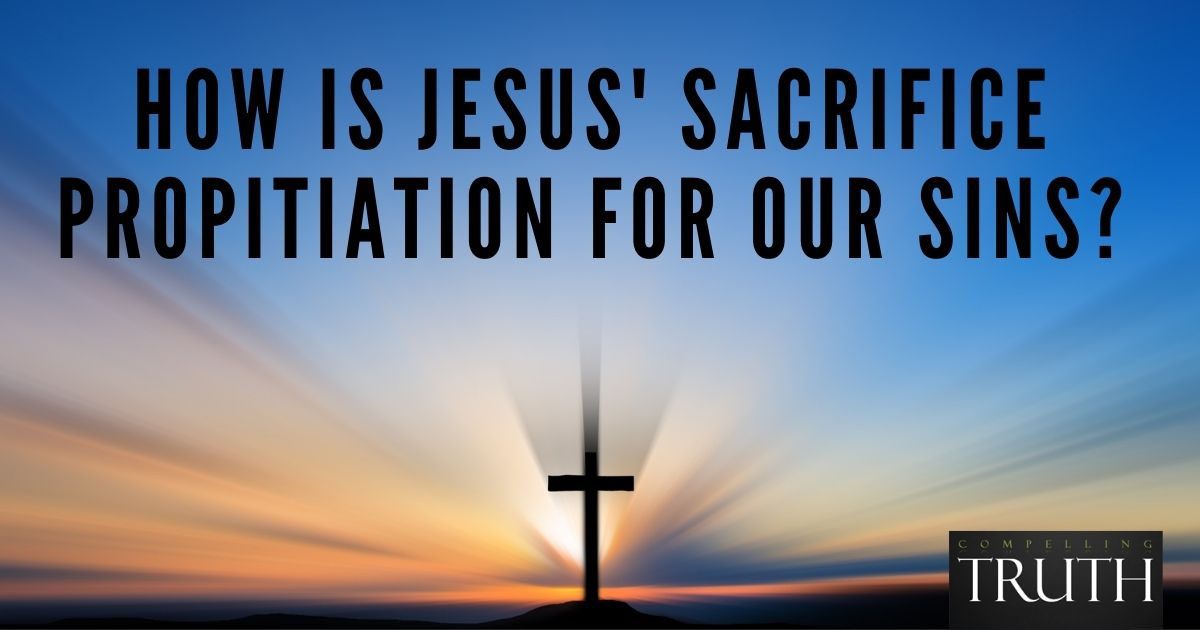Some have suggested that the only way Jesus could pay the penalty for our sins is to spend eternity in hell. Is this true? The answer is no, this is not true. Jesus paid for the eternal penalty of sins for all who would believe through His one-time sacrifice on the cross for sin.
First Peter 3:18 specifically notes that Jesus suffered once for sins on our behalf: "For Christ also suffered once for sins, the righteous for the unrighteous, that he might bring us to God." Because He is God incarnate, He could pay the eternal penalty of human sin in one ultimate sacrifice.
In 1 Peter 2:24, Peter refers to Jesus as the suffering servant of Isaiah 53, saying, "He himself bore our sins in his body on the tree, that we might die to sin and live to righteousness. By his wounds you have been healed." The sacrifice and "wounds" of Christ on the cross sufficiently paid for our sins to offer us righteousness.
In addition to paying the ultimate price of death on the cross, Jesus was also the ultimate Being to be sacrificed. In other words, perfect God in human form gave the perfect sacrifice. As a result, full payment has been made on behalf of human sin. All that remains is for the gift of salvation to be received by those who will believe in Him (John 1:12; 3:16).
Prior to the death of Christ, Jewish priests were required to regularly sacrifice offerings on behalf of the sins of the people. Hebrews 10:11-12, however, notes that this changed with the sacrifice of Jesus: "And every priest stands daily at his service, offering repeatedly the same sacrifices, which can never take away sins. But when Christ had offered for all time a single sacrifice for sins, he sat down at the right hand of God."
No longer was a repeated sacrifice necessary; Christ's sacrifice was and is sufficient for all time. Hebrews 10:14 adds, "For by a single offering he has perfected for all time those who are being sanctified."
The perfect God-man, Jesus Christ, paid the perfect, sufficient payment for sin. Finite beings would need to pay an infinite price for their sin against the infinite God. But because Jesus is God, He could make a one-time payment to cover our infinite offense. Rather than eternally living in hell to pay for the sins of humanity, He could offer Himself as a one-time, perfect sacrifice. Those who believe in Him receive salvation and forgiveness of sins, abundant life now (John 10:10) and eternal life with Him (John 3:16).
First Peter 3:18 specifically notes that Jesus suffered once for sins on our behalf: "For Christ also suffered once for sins, the righteous for the unrighteous, that he might bring us to God." Because He is God incarnate, He could pay the eternal penalty of human sin in one ultimate sacrifice.
In 1 Peter 2:24, Peter refers to Jesus as the suffering servant of Isaiah 53, saying, "He himself bore our sins in his body on the tree, that we might die to sin and live to righteousness. By his wounds you have been healed." The sacrifice and "wounds" of Christ on the cross sufficiently paid for our sins to offer us righteousness.
In addition to paying the ultimate price of death on the cross, Jesus was also the ultimate Being to be sacrificed. In other words, perfect God in human form gave the perfect sacrifice. As a result, full payment has been made on behalf of human sin. All that remains is for the gift of salvation to be received by those who will believe in Him (John 1:12; 3:16).
Prior to the death of Christ, Jewish priests were required to regularly sacrifice offerings on behalf of the sins of the people. Hebrews 10:11-12, however, notes that this changed with the sacrifice of Jesus: "And every priest stands daily at his service, offering repeatedly the same sacrifices, which can never take away sins. But when Christ had offered for all time a single sacrifice for sins, he sat down at the right hand of God."
No longer was a repeated sacrifice necessary; Christ's sacrifice was and is sufficient for all time. Hebrews 10:14 adds, "For by a single offering he has perfected for all time those who are being sanctified."
The perfect God-man, Jesus Christ, paid the perfect, sufficient payment for sin. Finite beings would need to pay an infinite price for their sin against the infinite God. But because Jesus is God, He could make a one-time payment to cover our infinite offense. Rather than eternally living in hell to pay for the sins of humanity, He could offer Himself as a one-time, perfect sacrifice. Those who believe in Him receive salvation and forgiveness of sins, abundant life now (John 10:10) and eternal life with Him (John 3:16).



